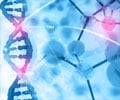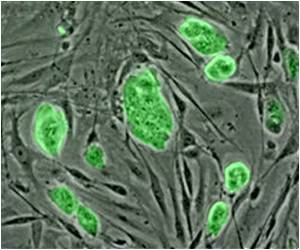Maple Syrup Urine Disease is a rare genetic disorder that affects protein metabolism, leading to toxicity.

BCKDHA-BCKDHB digenic gene therapy restores metabolic homeostasis in two mouse models and a calf with classic maple syrup urine disease
Go to source). “Simply put, we believe the gene therapy demonstrated in both animal species, especially in the cow, very well showcases the therapeutic potential for MSUD, in part because the diseased cow, without treatment, has a very similar metabolic profile as the patients,” said Dan Wang, PhD, assistant professor of genetic & cellular medicine.
‘Hope on the horizon! #Genetherapy showing promise for #MapleSyrupUrineDisease (MSUD). A potential life-changer for those affected. #MSUD #RareDisease’





Dr. Wang is co-principal investigator with Heather Gray-Edwards, DVM, PhD, assistant professor of genetic & cellular medicine; Guangping Gao, PhD, the Penelope Booth Rockwell Chair in Biomedical Research, director of the Horae Gene Therapy Center, director of the Li Weibo Institute for Rare Diseases Research and chair and professor of genetic & cellular medicine; and Kevin Strauss, MD, adjunct professor of pediatrics and head of therapeutic development at the Clinic for Special Children in Gordonville, Pennsylvania. The study, published in Science Translational Medicine, was partially funded through an agreement with ASC Therapeutics, a privately held biopharmaceutical company developing in-vivo gene replacement, gene editing and allogeneic cell therapies.
What is Maple Syrup Urine Disease
MSUD is a rare genetic inborn error of metabolism characterized by recurrent life-threatening neurologic crises and progressive brain injury that can only be managed with an exacting prescription diet or liver transplant from a donor.The condition occurs in one in 197,714 live births but is much more common in certain regions of Brazil, Portugal, Turkey, the Philippines, and among people of Ashkenazi or Mennonite descent. Among the Mennonite population such as communities in Lancaster County, Pennsylvania, the incidence of MSUD is one in 400.
MSUD is caused when a mutated form of the BCKDHA, BCKDHB or DBT gene is inherited from both parents. As a result of this mutation, the body is unable to break down certain parts of proteins. This leads to the build-up of toxic substances that can cause organ and brain damage.
Advertisement
Data from the calf translated more directly to humans for purposes of understanding pharmacokinetics, specific treatment effects on muscle and brain tissue, and long-term durability through an extended phase of growth.
Wang said that researchers are exploring with the U.S. Food and Drug Administration the next steps to translate this gene therapy into clinical use as a Phase I/II study.
Reference:
- BCKDHA-BCKDHB digenic gene therapy restores metabolic homeostasis in two mouse models and a calf with classic maple syrup urine disease - (https://www.science.org/doi/10.1126/scitranslmed.ads0539)
Source-Eurekalert















